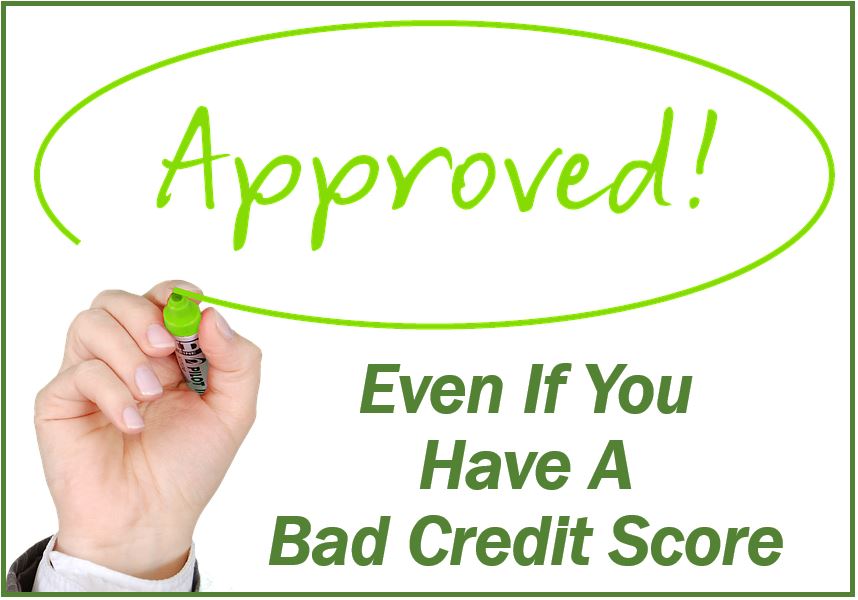If you need it, they’ve got it. It doesn’t matter what your credit report looks like. Your credit score has nothing to do with your loans. So, you can secure a personal loan with a bad credit score. But how? It’s all about how you approach the whole issue. It has a lot to do with the type of loan you are looking for. On those lines, here is all you should know as far as getting a personal loan with a bad credit score is concerned.
According to Mortgage Connection, your credit score represents your creditworthiness. Lenders check loan applicants’ scores to determine whether they are high or low risk borrowers. The higher the score, the lower the expected risk.
Use a Co-Signer
Look for a co-signer to help get your loan approved. A co-signer—a person with an excellent credit score—will help get your loan approved. However, in case you default repaying your loan, your co-signer will be responsible for repaying it.
The Right Lender
Don’t just choose any lender. Go to a lender with minimum legal requirements. For instance, if you can find a lender who can offer you a bad credit loan, that will be fine. Avoid lenders with strict procedures. They will frustrate you. There are several loans for people with bad credit scores. Do your research and secure yours today.
Work on Your Credit Score
Work on your credit score. Pay off your loans on time. Don’t take unnecessary loans.
Increase your annual income. Strive to increase your annual income. Keep your debts at a minimum.
Things to Know
What about The Interest Rate?
The interest rate is what the lender charges for the use of their money. It’s usually a small fraction of the amount loaned. And they’re typically divided into two different categories; fixed and variable. With fixed rates, the charges always remain fixed and unchanging. For instance, if your fixed interest rate is 8%, it will be 8%, for the loan’s entire life.
Variable rates, on the other hand, can change over time since they’re often based on a standard market rate, like the prime interest rate. For instance, if you take out a loan featuring a variable rate at prime +2, it means that you’ll pay 2% percent more than the standard prime rate, regardless of its value.
What about Loan Security?
Loans can either be secured or unsecured. With secured loans, you’ve to guarantee that your lender will be repaid in one way or another by providing them with a claim on something you possess.
If you fail to repay your loan, the creditor can seize the collateral to recover their investment. This form of guarantee gives creditors optimal security and enables them to charge low-interest rates. On the contrary, unsecured loans don’t require you to provide any collateral. The lender, therefore, has no protection in case the loan goes unpaid. That’s why they usually come with higher interest rates.
Sometimes, lending institutions require that an extra person co-signs for the unsecured loan, or vows to repay the loan in the event that you fail to do so. For students, no collateral is required and they still enjoy low-interest rates.
Understand the Terms and Conditions
The length of time within which a borrower has to repay a loan is referred to as the loan term. Most personal loans offer terms of between one and five years. But for student loans, the repayment periods are often 10 years. The longer the term, the greater the amount of interest rate charged. Even before the term is over, you always choose to pay off your loan.
The Bottom-Line
Can you really get a personal loan with a bad credit score? Yes, you can. However, it depends on your approach. Also, it depends on the lender you choose. You can secure a secured personal loan with a bad credit score. The above information will guide you on how to secure your loan with a bad credit score.
Video – What is a Credit Score?
Lenders such as banks need to determine what your behavior will be like with a debt obligation if you apply for a loan. The term does not have the same meaning as credit history.


